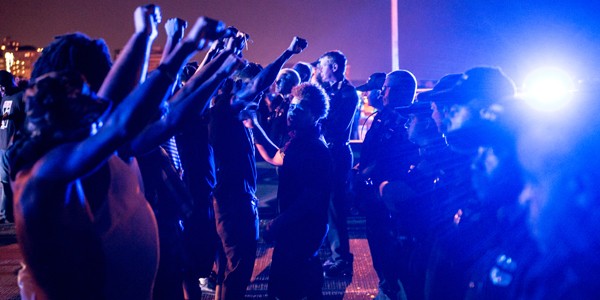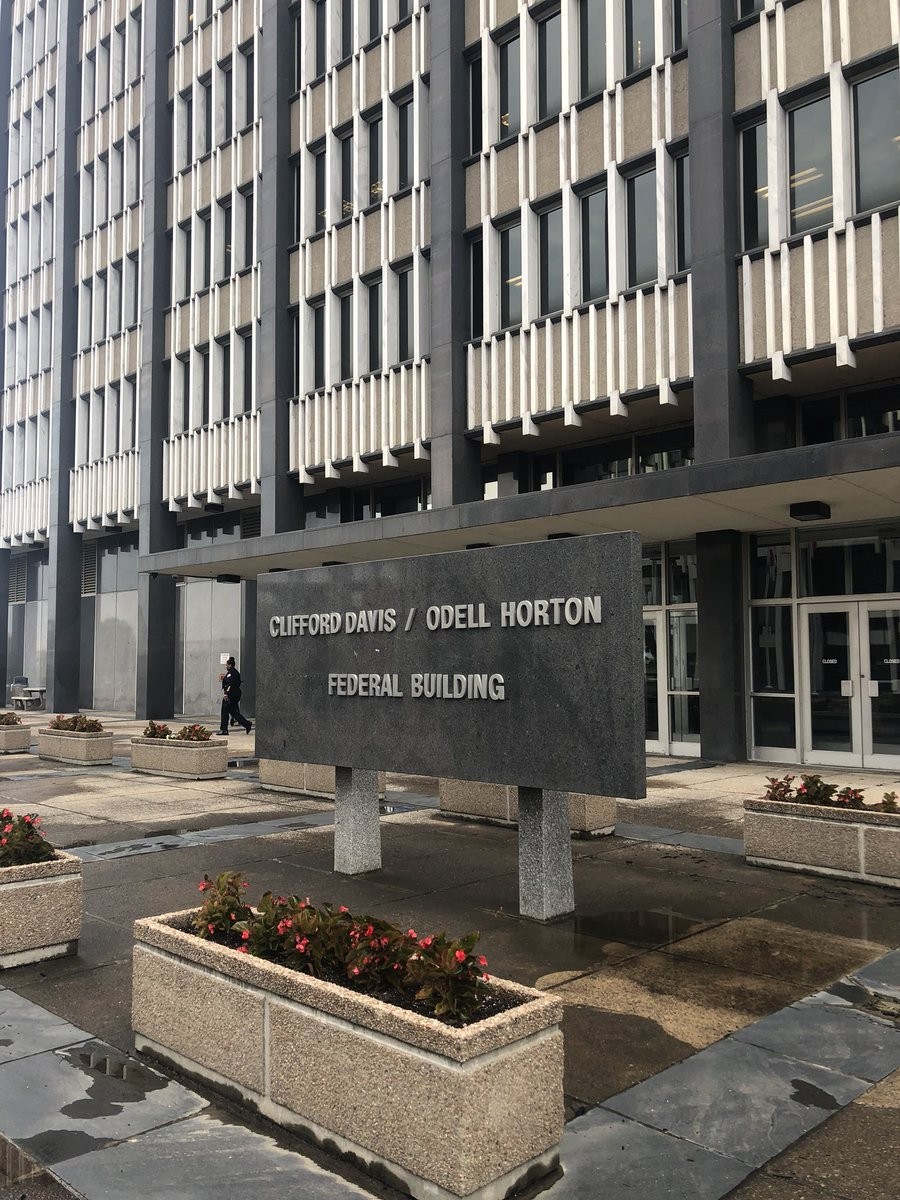 Brandon Dill
Brandon Dill
Protesters and police officers face off during the 2016 Hernando de Soto bridge protest
Court adjourned Thursday morning in the federal trial over Memphis police surveillance on activists.
Memphis Police Department (MPD) Major Lambert Ross was the last witness to take the stand in U.S. District Judge Jon McCalla’s courtroom. Ross was the head of the Real Time Crime Center (RTCC) during the time of the alleged police surveillance.
The RTCC houses more than 30 large, high-definition monitors displaying live footage from 1,000 cameras around the city. The footage is monitored by both civilian and commissioned officer analysts who can radio officers when incidents occur, Ross said.
Ross said that the RTCC was never used for political surveillance, but to find out where events were being held and how many people were involved. Precincts were then made aware of any large events that were ongoing in their area.
The RTCC began searching social media in 2014, Ross said. Initially, it was used to assist in solving crimes, but after the 2016 bridge protest, searches related to protests were more common. Specifically, Ross said Black Lives Matter was a recurring search term.
“I’m not going to say we chose that term, but it chose us,” Ross testified. “The event picks the search term.”
When asked if searching social media was ever done to find out if specific people would be involved in an event, Ross said no. Ross said as a black man, he “understands the right to protest” and would never interfere. As his MPD colleagues testified before him, Ross said the motivation for the monitoring was public safety.
The city and the ACLU-TN both rested their cases following Ross’ testimony and are required to submit closing briefs in writing to McCalla by Friday, Sept. 14th. Then, both sides have until Friday, Sept. 24th to respond to the opposing side’s brief.
McCalla will release the ruling after both sides have answered each others’ briefs. After court adjourned, one of the attorney’s for the ACLU-TN, Thomas Castelli, said he hopes that the trial will result in court-ordered independent monitoring of MPD, a change in their policies, and better training as it related to the 1978 consent decree.
Additionally and separately from this case, the city has filed a motion to vacate or modify the decree. The ACLU has until early October to that request.
Bruce McMullen, chief legal officer for the city of Memphis, said the city is asking the court vacate the consent decree “because it’s not really relevant today.” It predates any standard technology that law enforcement uses today, he said.
If the court isn’t willing to completely do away with the decree, McMullen said it should “at least be modified and updated so that it’s applicable to the law enforcement best practices that we use today.”
“I want to emphasize that it’s nothing we’re doing today that 155 other jurisdictions do not do in law enforcement,” McMullen said. “It’s basic law enforcement, from Skycops to body cams, which a lot of citizens supported us getting.”
